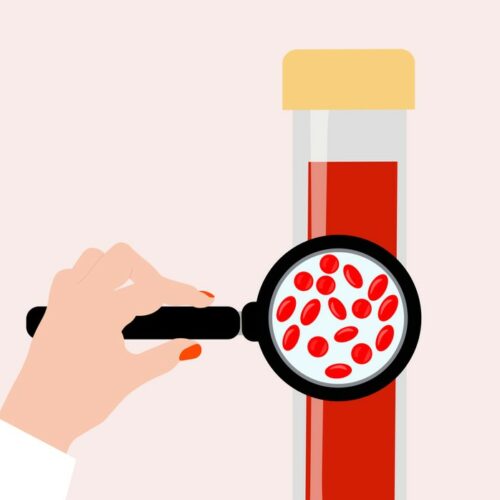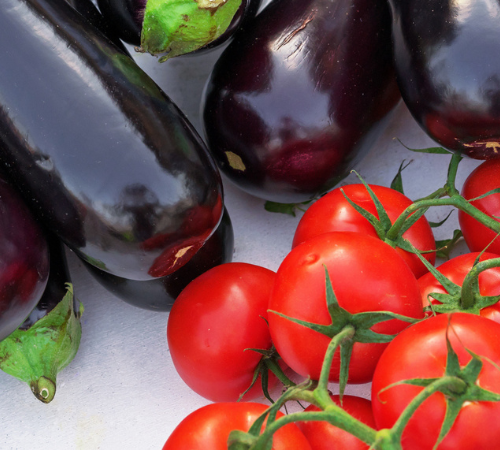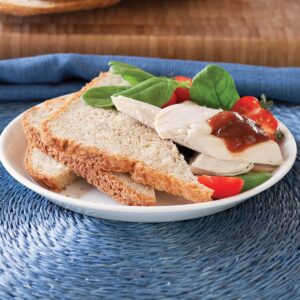
Healthy Food Guide founding editor Niki Bezzant takes a look at why humans need to eat a wide range of foods for optimal health
Q Why is it that other animals can thrive on often a very limited range of foods in their diets, but we humans are required to eat such a wide range of foods to remain in good health?
Ginny
A The answer to this question lies in evolution. Put simply, humans have evolved to be omnivores over many thousands of years, as we’ve adapted to our environments.
Other animals have evolved differently: your cat, for example, is a carnivore through and through, and would die on a vegan diet. A cow, by contrast, is a herbivore that gets all it needs from grass and other plants.
It’s human beings’ omnivorous diet that has allowed our brains to develop and get bigger and smarter over time. The theory is that we developed to become long-distance runners, hunting prey by running it down and tiring it out. Being able to eat meat meant our brains could evolve more. Our teeth are a bit of a giveaway to our omnivorous nature; we have both the biting and tearing incisors and canines of carnivores, and the chewing molars of herbivores.
As time’s gone on, humans have evolved to depend on a wide range of nutrients and micronutrients to thrive. Research shows us that a more diverse diet helps us live longer and lowers our risk of disease. There’s evidence to show that a diet consisting of five or six food groups is associated with reduced risk for a range of diseases, including type 2 diabetes, metabolic syndrome, asthma, food allergies and depression.
We hear the advice a lot, but what does a ‘diverse’ diet really mean? We need to be careful when we think about this. Experts stress it doesn’t just mean eating lots of different foods of all types! We risk developing overweight and obesity if we include lots of poor quality, processed foods in our varied diet. We need to emphasise quality over quantity on top of diversity; that means prioritising plants, especially a wide range of vegetables, and including grains, legumes and fruit of different types. A good way to think about it is to make sure you eat lots of colours every day. Take a look here for a guide to eating a hugely varied diet including more than 30 plants in your week.
Varying our protein sources is a good idea, too. Think fish and seafood, chicken, red meat, tofu and other vegetarian protein and nuts and seeds.
A diverse diet doesn’t have to include animal foods; we can be healthy and well on vegetarian or vegan diets, too. We just need to make sure we plan them well so we get enough protein, and make sure we include sources of vitamin B12; something we’ve also evolved to need to survive, and which is naturally found mainly in animal foods.
Article sources and references
- Poorrezaeian, M., Siassi, F., Milajerdi, A. et al. Depression is related to dietary diversity score in women: a cross-sectional study from a developing country. Ann Gen Psychiatry 16, 39 (2017). https://doi.org/10.1186/s12991-017-0162-2https://annals-general-psychiatry.biomedcentral.com/articles/10.1186/s12991-017-0162-2
- Conklin A,Monsivais P, et al. Dietary Diversity, Diet Cost, and Incidence of Type 2 Diabetes in the United Kingdom: A Prospective Cohort Study. Published: July 19, 2016, PLOS Medicine https://doi.org/10.1371/journal.pmed.1002085https://journals.plos.org/plosmedicine/article?id=10.1371/journal.pmed.1002085
- Azadbakht, L., Mirmiran, P. & Azizi, F. Dietary diversity score is favorably associated with the metabolic syndrome in Tehranian adults. Int J Obes 29, 1361–1367 (2005). https://doi.org/10.1038/sj.ijo.0803029https://www.nature.com/articles/0803029
- The Conversation. Adding variety to your diet lowers disease risk. But what does variety mean? Accessed Septemeber 2021https://theconversation.com/adding-variety-to-your-diet-lowers-disease-risk-but-what-does-variety-mean-123517
- Forbes. How Humans Evolved To Be Natural Omnivores. Accessed Septemebr 2021https://www.forbes.com/sites/quora/2016/12/23/how-humans-evolved-to-be-natural-omnivores/?sh=58b441587af5
www.healthyfood.com










